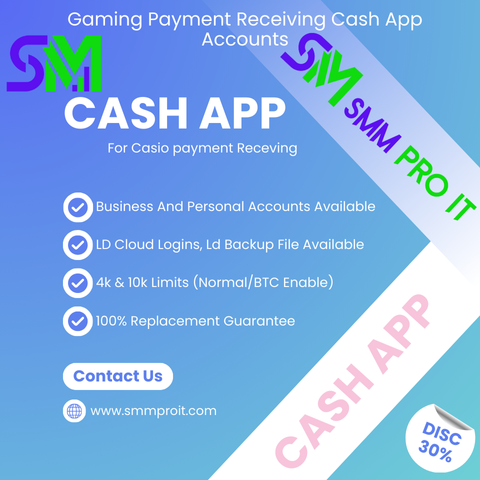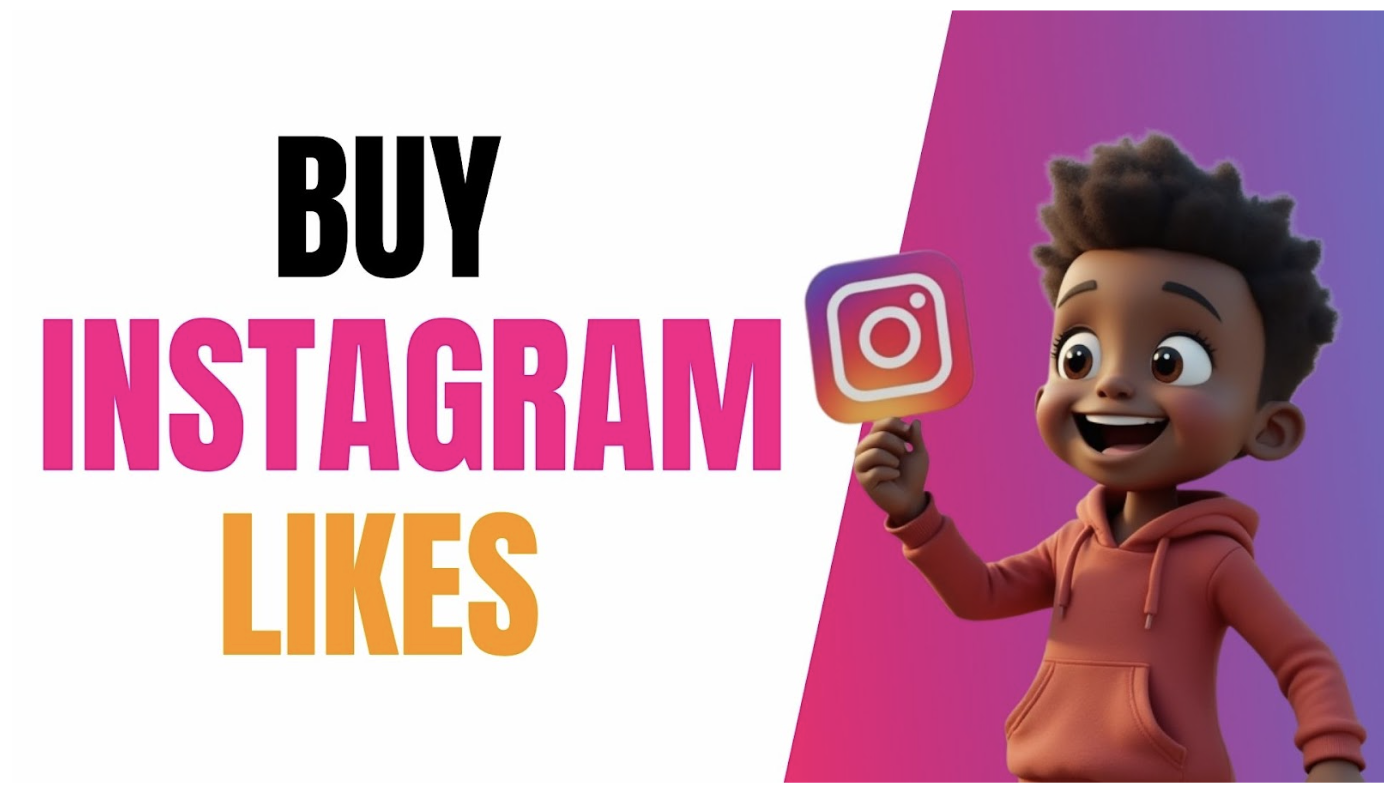Buy Verified Cash App Account – The Ultimate Guide for Gaming Businesses
Email: contact.smmproit@gmail.com
Telegram: @smmproit
Whatsapp:+1(812)528-8960
https://smmproit.com/product/buy-verified-cash-app-accounts/
Are you running a gaming business? Are you a game host accepting payments daily? Then you already know one thing — smooth financial transactions matter. That’s why many entrepreneurs choose to buy verified Cash App account options instead of struggling with unverified accounts.
Let’s break everything down in simple words. No confusion. Just real talk.
## Why Should You Buy Verified Cash App Accounts for Your Gaming Business?
Running a gaming business is like managing a live stream. Money flows in fast. Players join. Payments move. You don’t have time for limits or blocked transactions.
### Fast Financial Transactions for Game Hosts
When you use verified cash app accounts, your transactions move smoothly. No random holds. No unnecessary delays. A game host needs instant access to money.
Think of it like offline listening download mode. Once it’s set up, everything works uninterrupted. No buffering.
### Higher Transaction Limits and More Freedom
Unverified accounts come with limits. That’s frustrating.
A verified cash app account gives you higher transaction limits. That means:
More money received.
Bigger deposits.
Faster withdrawals.
No upgrade upgrade upgrade pro stress later.
For gaming businesses, this is gold.
## The Positive Side of Buy Verified Cash App Accounts
Let’s look at the bright side.
### Instant Access to Premium Services
With a verified account, you unlock additional features. You get access to:
Bitcoin trading.
Cash App Borrow.
Premium services.
Secure bank account linking.
It’s like using creator tools in pro mode. Unlimited uploads share infinite opportunities.
### Secure Money Transfers with Trust
Trust is everything.
When you deal with players and creators upload profile posts, you must look professional. A verified account builds trust. It shows you’re serious about your business.
## How Does Cash App Work?
Simple.
You connect your bank account. Add your phone number. Verify your identity. Then send and receive money.
### Linking Your Bank Account
Link your bank account to move money easily. Think of it as connecting ok home link join pro — once linked, everything syncs.
### Sending and Receiving Money
You can:
Send money instantly.
Receive payments from players.
Use live stream donations.
Accept money during live streaming broadcast music sessions.
Cash App makes financial transactions smooth and easy.
## What is a Verified Cash App Account?
A verified account means your identity is confirmed.
### Government-Issued ID Verification
You must submit a government-issued ID. This removes limits and gives you full access.
### Phone Number and Identity Confirmation
You confirm your phone number and personal details. After approval, you enjoy higher transaction limits and premium services.
## Benefits of a Verified Cash App Account
Why upgrade? Why not stay basic?
Because verified cash app accounts give power.
### Higher Transaction Limits
You can send and receive more money weekly. That’s critical for gaming businesses handling large transactions.
### Bitcoin and Investment Access
Want to Buy BTC Enabled Cash App Account? Only verified users can enable Bitcoin.
## Buy BTC Enabled Cash App Account
Bitcoin is popular. Many gaming businesses use crypto payments.
A BTC-enabled verified cash app account allows:
Buying and selling Bitcoin.
Faster crypto transfers.
Secure storage.
Is it safe? Yes, if used properly and enabled legally.
## What is the Limit of a Verified Cash App?
Unverified accounts are limited to small amounts.
Verified accounts allow much larger weekly transactions. That means fewer headaches and uninterrupted listening upfront tracklists of business growth.
## How to Unlock Cash App Borrow?
Cash App Borrow is not automatic.
To unlock:
Use your verified account regularly.
Maintain healthy transactions.
Keep good activity history.
Enable direct deposit.
Over time, Cash App may offer borrowing.
Email: contact.smmproit@gmail.com
Telegram: @smmproit
Whatsapp:+1(812)528-8960
https://smmproit.com/product/buy-verified-cash-app-accounts/
Buy Verified Cash App Account – The Ultimate Guide for Gaming Businesses
Email: contact.smmproit@gmail.com
Telegram: @smmproit
Whatsapp:+1(812)528-8960
https://smmproit.com/product/buy-verified-cash-app-accounts/
Are you running a gaming business? Are you a game host accepting payments daily? Then you already know one thing — smooth financial transactions matter. That’s why many entrepreneurs choose to buy verified Cash App account options instead of struggling with unverified accounts.
Let’s break everything down in simple words. No confusion. Just real talk.
## Why Should You Buy Verified Cash App Accounts for Your Gaming Business?
Running a gaming business is like managing a live stream. Money flows in fast. Players join. Payments move. You don’t have time for limits or blocked transactions.
### Fast Financial Transactions for Game Hosts
When you use verified cash app accounts, your transactions move smoothly. No random holds. No unnecessary delays. A game host needs instant access to money.
Think of it like offline listening download mode. Once it’s set up, everything works uninterrupted. No buffering.
### Higher Transaction Limits and More Freedom
Unverified accounts come with limits. That’s frustrating.
A verified cash app account gives you higher transaction limits. That means:
More money received.
Bigger deposits.
Faster withdrawals.
No upgrade upgrade upgrade pro stress later.
For gaming businesses, this is gold.
## The Positive Side of Buy Verified Cash App Accounts
Let’s look at the bright side.
### Instant Access to Premium Services
With a verified account, you unlock additional features. You get access to:
Bitcoin trading.
Cash App Borrow.
Premium services.
Secure bank account linking.
It’s like using creator tools in pro mode. Unlimited uploads share infinite opportunities.
### Secure Money Transfers with Trust
Trust is everything.
When you deal with players and creators upload profile posts, you must look professional. A verified account builds trust. It shows you’re serious about your business.
## How Does Cash App Work?
Simple.
You connect your bank account. Add your phone number. Verify your identity. Then send and receive money.
### Linking Your Bank Account
Link your bank account to move money easily. Think of it as connecting ok home link join pro — once linked, everything syncs.
### Sending and Receiving Money
You can:
Send money instantly.
Receive payments from players.
Use live stream donations.
Accept money during live streaming broadcast music sessions.
Cash App makes financial transactions smooth and easy.
## What is a Verified Cash App Account?
A verified account means your identity is confirmed.
### Government-Issued ID Verification
You must submit a government-issued ID. This removes limits and gives you full access.
### Phone Number and Identity Confirmation
You confirm your phone number and personal details. After approval, you enjoy higher transaction limits and premium services.
## Benefits of a Verified Cash App Account
Why upgrade? Why not stay basic?
Because verified cash app accounts give power.
### Higher Transaction Limits
You can send and receive more money weekly. That’s critical for gaming businesses handling large transactions.
### Bitcoin and Investment Access
Want to Buy BTC Enabled Cash App Account? Only verified users can enable Bitcoin.
## Buy BTC Enabled Cash App Account
Bitcoin is popular. Many gaming businesses use crypto payments.
A BTC-enabled verified cash app account allows:
Buying and selling Bitcoin.
Faster crypto transfers.
Secure storage.
Is it safe? Yes, if used properly and enabled legally.
## What is the Limit of a Verified Cash App?
Unverified accounts are limited to small amounts.
Verified accounts allow much larger weekly transactions. That means fewer headaches and uninterrupted listening upfront tracklists of business growth.
## How to Unlock Cash App Borrow?
Cash App Borrow is not automatic.
To unlock:
Use your verified account regularly.
Maintain healthy transactions.
Keep good activity history.
Enable direct deposit.
Over time, Cash App may offer borrowing.
Email: contact.smmproit@gmail.com
Telegram: @smmproit
Whatsapp:+1(812)528-8960
https://smmproit.com/product/buy-verified-cash-app-accounts/







